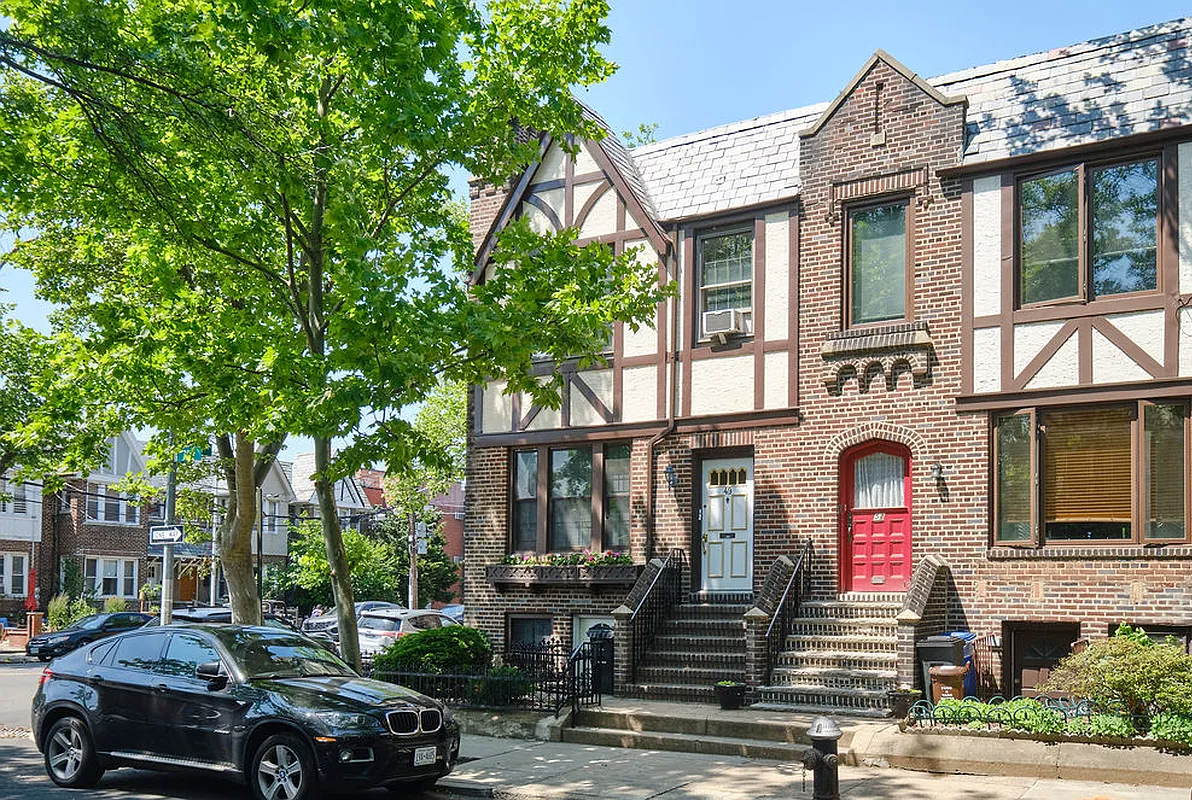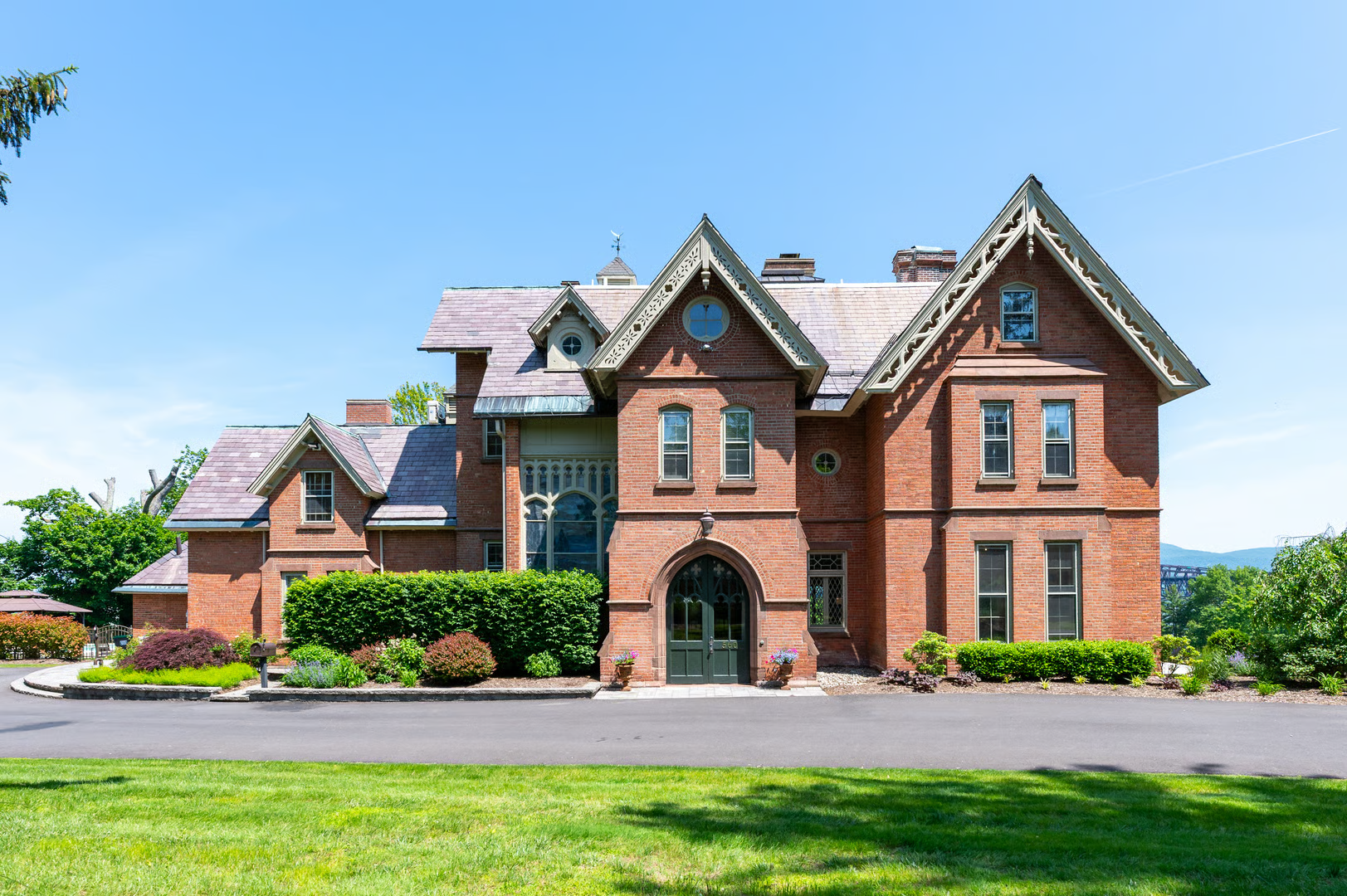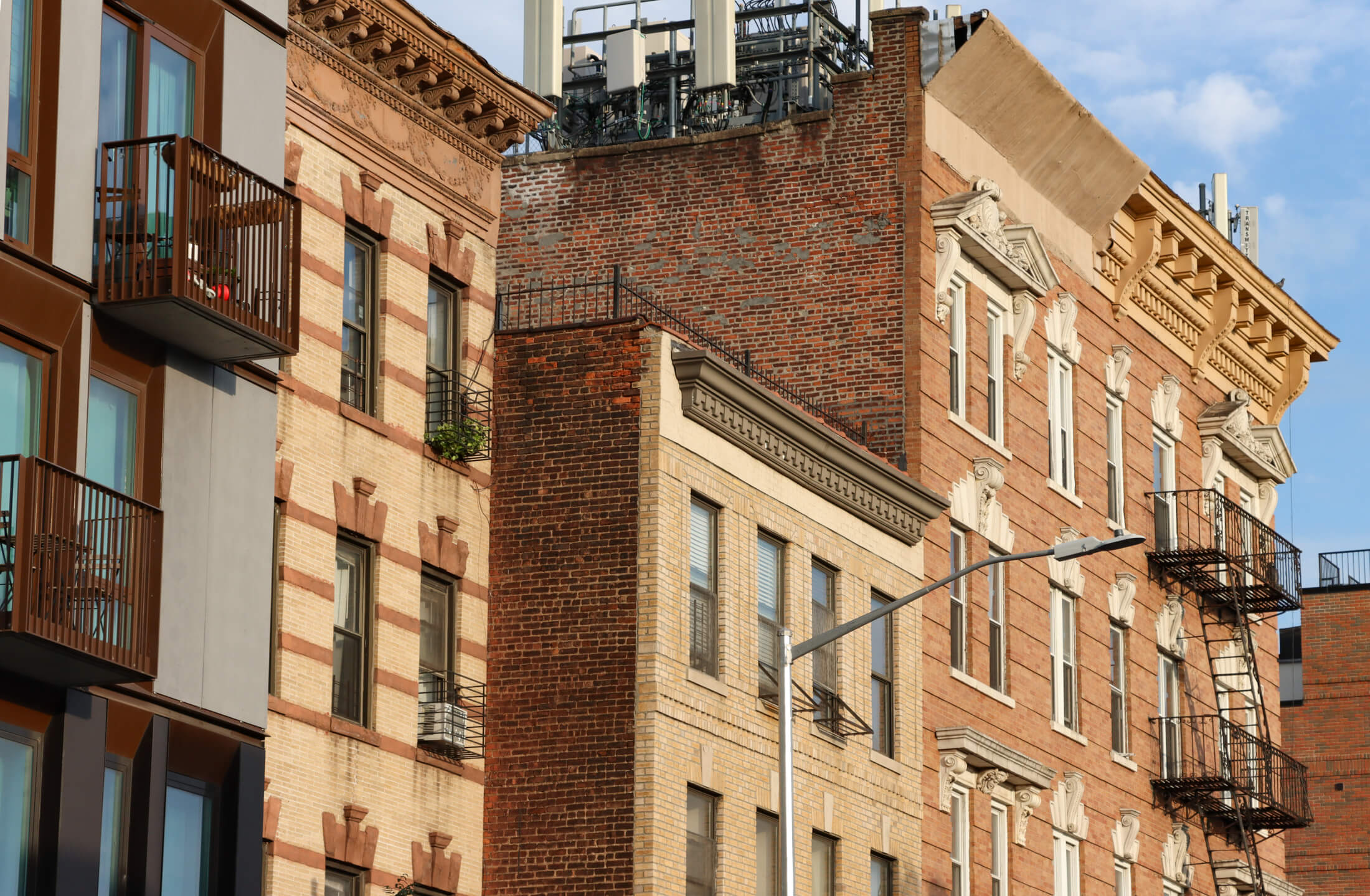Train Disruptions Caused by Trees on Subway Tracks Shoot Up
Halfway through 2024, the number of delays is already more than double 2023’s total — with the Q and B trains in Brooklyn especially hard hit.

A Q train passes under low-hanging branches in Ditmas Park, Brooklyn, July 23, 2024. Photo by Alex Krales/THE CITY
This article was originally published on by THE CITY
Trees and branches that tumble onto the subway tracks have already delayed nearly 800 trains this year, MTA data shows — far more than in all of 2023.
The impact has been felt most sharply along the Brighton Line, the stretch of open-air tracks south of Prospect Park where B and Q trains run beneath tree-covered Brooklyn backyards. According to MTA statistics, 415 trains on the Brighton Line were delayed through July 18 because of fallen trees and branches, with that total easily exceeding any of the totals for the previous three full years. Put another way, the line has had 139 percent more tree-related delays in the first seven months of 2024 than it did in the previous 12 months.
While the 766 systemwide delays tied to trees so far this year reflect just a sliver of the more than 169,000 subway delays overall, riders and homeowners who live next to the open-trench tracks said their recent frequency reflects how vulnerable outdoor portions of the transit system are to tree-rattling wind and storms.
“It shows that the MTA needs to think about how increasingly powerful storms can affect the infrastructure,” said Jeremy Wilcox, whose June 27 commute on the Q was upended after a tree fell onto the tracks near the Beverley Road station in Ditmas Park, disrupting B and Q service for several hours. “If you’ve got a tree branch that hangs over the tracks, you might want to be a good citizen and proactively cut off that branch.”
Trees slowed Manhattan-bound service along the Q line again last week after MTA workers had to remove a downed tree from subway tracks near the Parkside Avenue stop.
“In all of those instances it causes the need to mobilize crews, to go out and chop up whatever is there,” Lisa Schreibman, New York City Transit’s acting head of subways, told THE CITY.

The 415 incidents along the Brighton Line through six and a half months of 2024 far outnumber tree-driven service impacts elsewhere in the subway system. There have been 126 such delays on the Dyre Avenue Line of the No. 5 in the northeast Bronx, 43 along the N’s Sea Beach Line in Brooklyn and 182 other delays elsewhere.
Transit officials said that trees and branches extending from private homes and buildings and into the MTA’s space above subway tracks present a challenge to subway service and to property owners whose homes overlook open-air rails.
Howard Wallick said he has called tree trimmers to his Ditmas Park home to cut back two maple trees in the backyard when branches have extended over a wall separating the property from the trench. But he said he has never received any notice from the MTA about the trees crossing onto the transit agency’s side of the tracks.
“We’ve had them trimmed over the years but mostly on our side,” said Wallick, 67. “We can’t do anything [above the tracks], there is no tree guy that’s going to go work over the tracks.”

Schreibman said the MTA keeps contractors on call to inspect trees and branches that could pose a risk to subway service, but added that the transit agency needs permission and cooperation from property owners.
“The property rights are real,” she said. “We cannot just walk across someone’s property line with a chainsaw and chop up a tree.”
Schreibman cited how two homeowners called the MTA to inspect properties with trees after the June 27 storm that disrupted the morning commute when one fell onto the tracks near the Beverley Road stop. Ideally, she said, homeowners should do their own maintenance or bring in arborists.
“We do have some neighbors who, I think, believe that trees are sort of permanent objects and never need maintenance,” she said. “And the message we want to get out to all the homeowners is, we’re thrilled when you’re doing your own maintenance.”
Blake Morris, a lawyer whose home overlooks the tracks between the Cortelyou Road and Newkirk Plaza stations, said the MTA needs to do more tree maintenance on its side of the property. He added that the trees that make the Brighton Line “world famous” amount to a “thing of absolute negligence” by the transit authority.

“We’ve gotten new concrete ties, we’ve gotten new rails, we’re getting new signals,” said Morris, who has lived above the subway trench for 24 years. “So they have spent money on other things, but cutting back on vegetation? That’s not what they do.”
The issue of where property rights begin and end has previously come into question for property owners whose buildings border the subway tracks.
In 2019, Ditmas Park and Flatbush residents whose homes overlook the subway tracks pushed back against the city after receiving city Buildings Department violation notices over the condition of the retaining walls alongside the trench.
Patricia Miceli, who has lived above the B/Q tracks in Ditmas Park for nearly 30 years, said she trims two willow trees in her backyard in hopes that they don’t affect subway service.
“It’s nature, you can’t control it,” she said. “But you can tame it somehow.”
She paid to have an ailing maple tree removed from her backyard in 1996, cutting off the prospect of it eventually tumbling onto the tracks.
“It was sick,” said Miceli, 67. “It’s not like you want to interfere with the people going to work or coming to work. It’s a pain in the neck when you get stranded.”
Related Stories
- Dedicated Bus Lane On the Way for Flatbush Avenue
- Elevator Installation at Classon Avenue Station Will Kick Off in June
- Newly Formed Environmental Coalition Demands Community-Led BQE Overhaul
Email tips@brownstoner.com with further comments, questions or tips. Follow Brownstoner on X and Instagram, and like us on Facebook.





What's Your Take? Leave a Comment